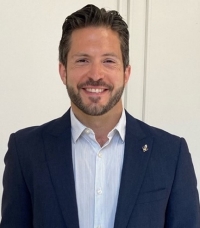Developing and testing sustainable health behaviour change programs in the community is challenging due to common barriers (e.g., stakeholder engagement, human/financial resources, and operational guidelines).
The first half of this talk will focus on the implementation of a peer-based physical activity program for adults with moderate-to-severe traumatic brain injury across Dr. Quilico’s PhD research with multiple collaborators at the institutional, organizational, and community level, as well as the biopsychosocial outcomes that resulted.
The second half will focus on the collaborative work Dr. Quilico is involved with through the North Texas TBI Model System and the line of research he is developing through his postdoc.
The presentation will extend study results with insight about engaging communities and institutions through evidence-based interventions that bridge the gap between the clinical and community context with peer-based, autonomy-supportive approaches. Implications for creating, implementing, and testing health behaviour interventions across the continuum of care will be discussed.




